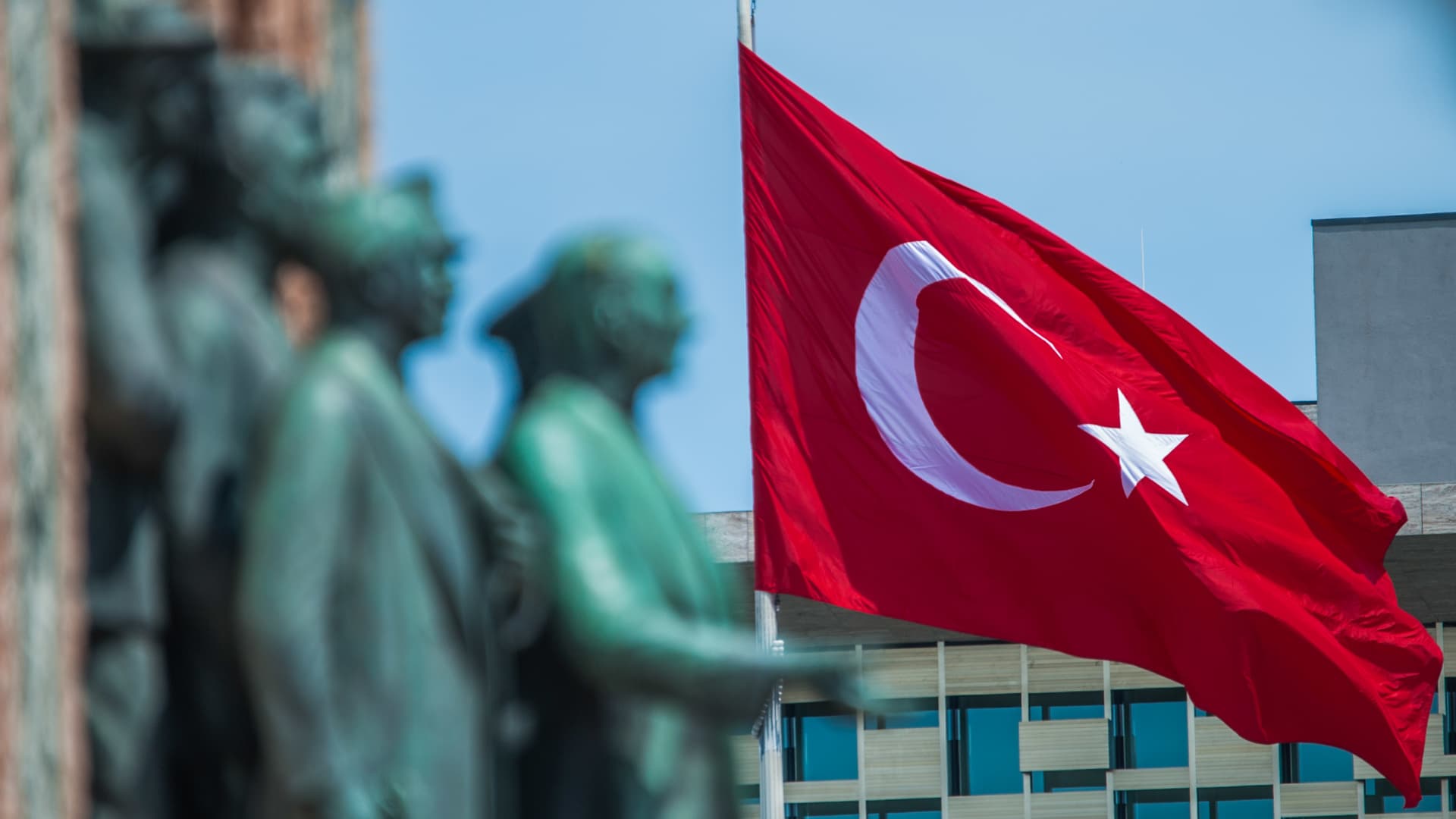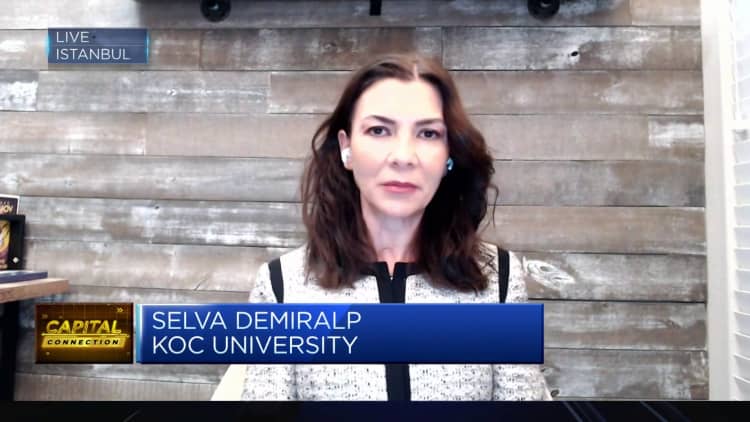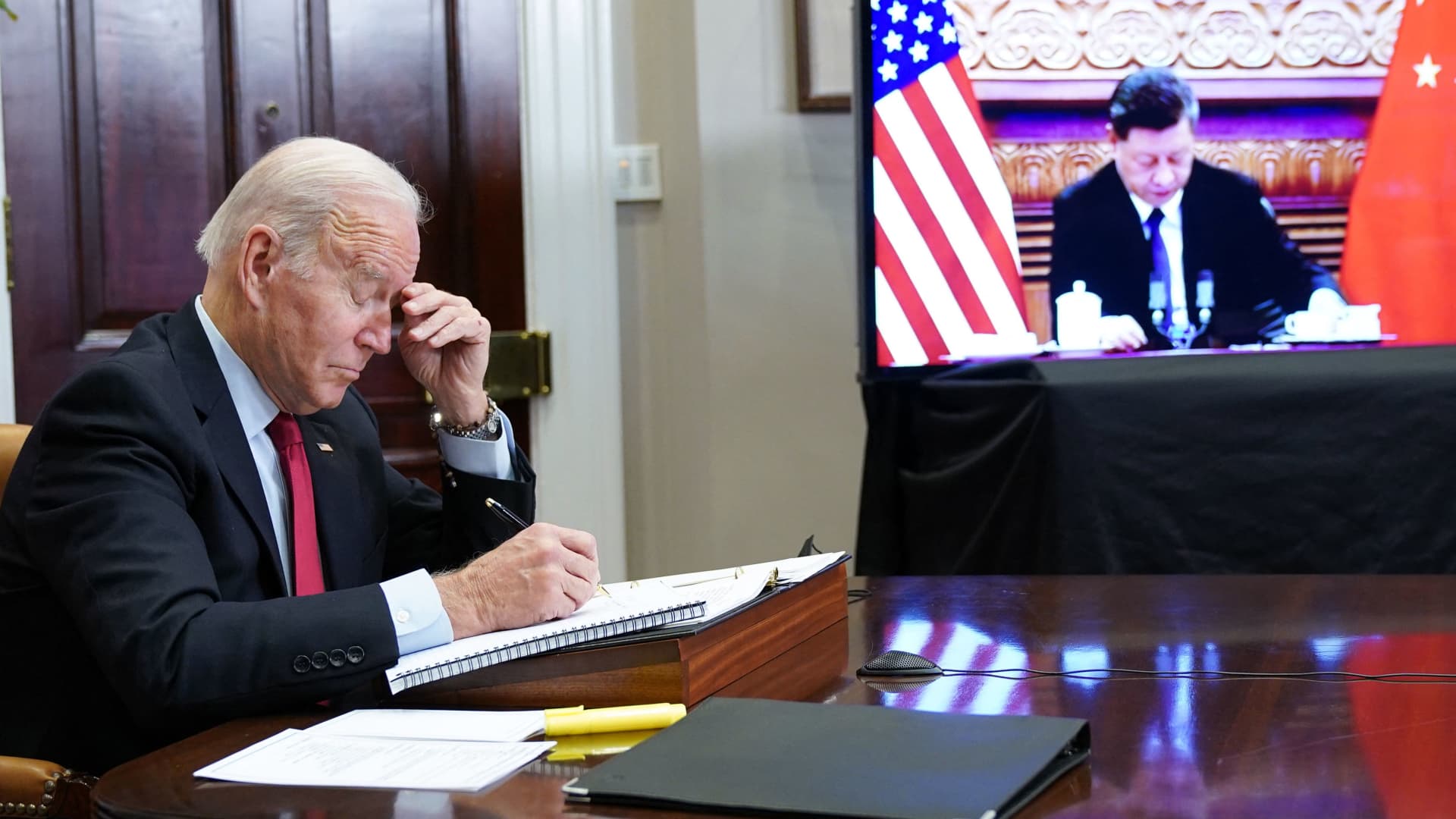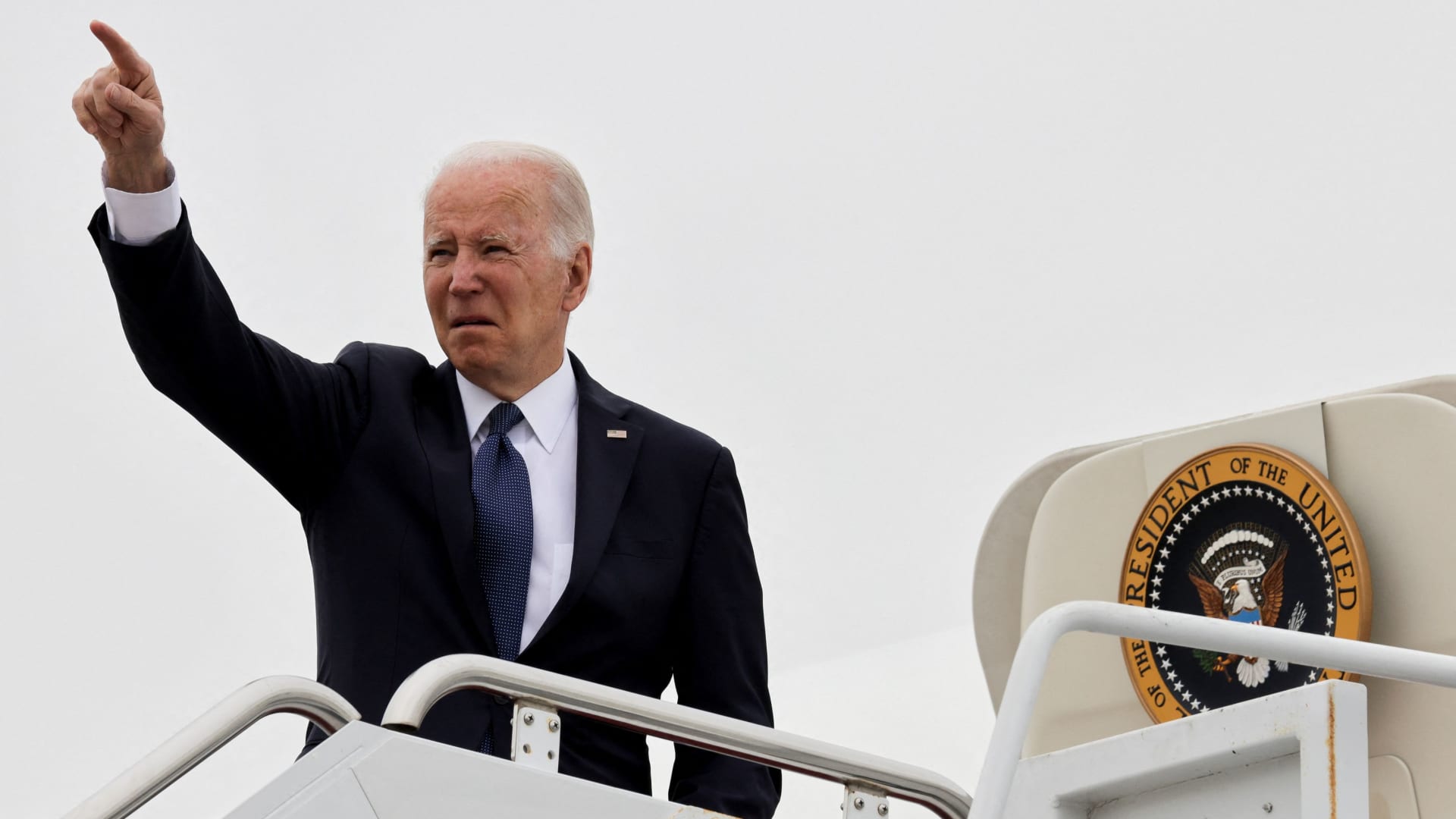Turkey's central bank raises interest rate to 50% despite previous hints of end to hike cycle
Turkish annual consumer price inflation soared to 67% in February, fueling concerns that Turkey's central bank might have to return to tightening.

Turkey's Taksim Square, with the figure of Kemal Ataturk, the first president, and the Turkish flag in the background.
Sopa Images | Lightrocket | Getty Images
Turkey's central bank on Thursday raised its key interest rate, the one-week repurchase rate, from 45% to 50%, citing the continuing need to counter climbing inflation in the country.
"In February, led by services inflation, the underlying trend of monthly inflation was higher than expected," the bank's Monetary Policy Committee said in a statement after the decision. It noted that imports of consumption goods and gold slowed, which improved Turkey's current account balance, but that domestic demand remaining "resilient."
"Stickiness in services inflation, inflation expectations, geopolitical risks, and food prices keep inflation pressures alive," the statement said. "The Committee closely monitors the alignment of inflation expectations and pricing behavior with projections, and the impact of wage increases on inflation."
Turkish annual consumer price inflation soared to 67% in February, fueling concerns that Turkey's central bank — which had indicated a month prior that its painful eight-month-long rate-hiking cycle was over — might have to return to tightening.
The Monetary Policy Committee made it clear that it would not shy away from further hikes, if these are needed to keep its inflation targets on track.
"In response to the deterioration in the inflation outlook, the Committee decided to raise the policy rate. Tight monetary stance will be maintained until a significant and sustained decline in the underlying trend of monthly inflation is observed, and inflation expectations converge to the projected forecast range," it said.
"Monetary policy stance will be tightened in case a significant and persistent deterioration in inflation is foreseen."

For Timothy Ash, an emerging markets strategist at BlueBay Asset Management, the rate rise shows a dedication to tackling inflation and should reassure investors of the central bank's independence. Expectations were heavily slanted toward a rate hold ahead of local elections in Turkey due to take place on March 31.
"Hugely positive move by the CBRT, hiking against expectations by 500bps to 50%," he said, referring to the Turkish central bank by its acronym.
"Note the narrative had been that the CBRT could not hike before local elections as Erdogan had not given them the green light. This move shows that Simsek and the CBRT have been given a strong mandate to do whatever its takes to fight inflation," Ash said, referencing Turkish Finance Minister Mehmet Simsek. "They are proving their independence now."
Turkey's lira was trading at 32.13 to the dollar shortly after the announcement, hovering around its record low of 32.358 to the greenback reached on Tuesday. The beleaguered Turkish currency has lost 40% of its value against the dollar in the past year, and 82.6% in the last five years.
Turkey's inflation climbed dramatically over the span of a few years, as foreign reserves declined and Turkish President Recep Tayyip Erdogan staunchly refused to raise rates, calling them "the mother of all evil" and insisting, against economic orthodoxy, that lowering rates was the way to cool inflation.
The eventual return to orthodox policy led to the appointment of a new finance and monetary policy team, and to a cumulative rate increase of 3,650 basis points between May 2023 and January 2024.
The country of 85 million is still in trouble, despite current steering by policymakers that has reassured many investors, says Bartosz Sawicki, a market analyst at fintech firm Conotoxia.
"Monetary policy in Turkey entered a critical phase. The vicious circle of long-known vulnerabilities seems to be gaining momentum yet again. Inflation is refusing to abate, the lira is under renewed pressure and foreign capital inflows appear to be losing momentum, exposing depleted foreign exchange reserves," Sawicki wrote in an analysis note.
"It quickly became clear that even delivering 3,650 basis points of cumulative hikes since the May 2023 presidential elections were not enough to quickly fix imbalances cultivated by years of irresponsible, unorthodox policies."

 Tfoso
Tfoso 
































